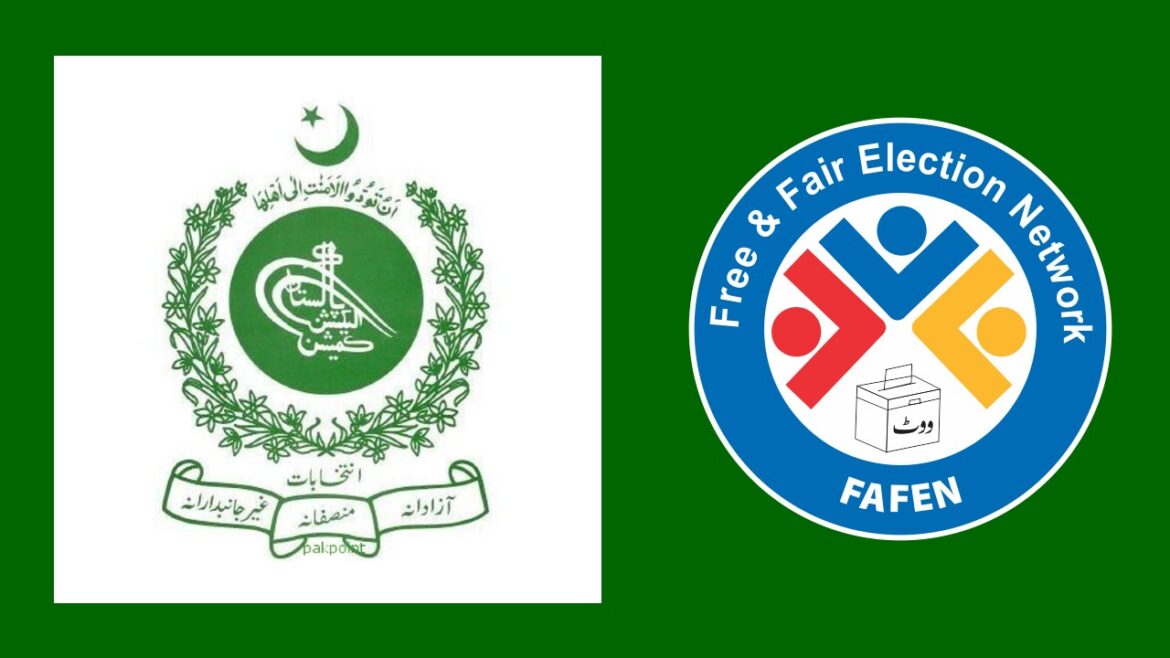An influential civil society network dedicated to strengthening democratic processes, FAFEN argues that transparency in ROs’ decisions to reject nominations is essential to upholding the credibility of the electoral process.
By Nusrat Shaheen
ISLAMABAD: The Free and Fair Election Network (FAFEN) has called upon the Election Commission of Pakistan (ECP) to publish the decisions of Returning Officers (ROs) regarding objections to nominations of candidates and rejections of nomination papers on its website.
This move, according to the influential pro-democracy civil society advocacy group, will contribute towards a more informed discourse and strengthen electoral transparency.
Transparency and informed discourse
Section 62 (11) of the Elections Act, 2017 requires the ROs to record brief reasons for their decisions in the case of rejection or objection to acceptance of a nomination paper. Although the Act itself doesn’t explicitly mandate the publication of these decisions, FAFEN argues that Section 4(3) empowers the Commission to take any measures necessary to fulfil its constitutional mandate of conducting elections honestly, justly, fairly, and in accordance with the law.
FAFEN believes sharing ROs’ decisions will empower citizens to understand the reasoning behind these decisions and encourage informed opinions about the electoral process. This, in turn, will not only bolster transparency but also act as a safeguard against the spread of misinformation and disinformation, adding to the integrity and credibility of the ECP and the electoral process.
Rejection rates and grounds
According to ECP statistics, ROs have rejected nomination papers of around 12.4 percent of candidates for the upcoming General Election during the scrutiny process. This figure is slightly higher than in the 2018 general election (10.4 percent) but lower than in 2013 (14.6 percent).
Section 62(9) of the Act outlines the grounds on which ROs can reject nomination papers. These include defects in a candidate’s qualifications to be a Member of the National or Provincial Assembly; defects in the qualifications of the proposer or seconder; material deficiencies or falsehoods in declarations and documents; and ungenuine signatures of the proposer or seconder.
However, the Act also stipulates that ROs cannot reject papers for minor defects and should allow for rectification where possible. FAFEN has urged the ECP to investigate whether these provisions have been strictly adhered to and, if not, to take necessary action against the officials concerned.
FAFEN’s recommendations
In addition to calling for the publication of ROs’ decisions, FAFEN has also recommended that the ECP develop clear guidelines for ROs on the application of Section 62(9); establish a mechanism for public scrutiny of ROs’ decisions; and provide training to ROs on the importance of transparency and accountability.
By taking these steps, FAFEN believes that the ECP can help ensure that the upcoming general election is conducted in a fair, transparent, and credible manner.
The ECP has not yet responded to FAFEN’s call and it is not clear at this point if or when it will. However, the issue of transparency in the electoral process is likely to be a major talking point in the coming weeks and months.
FAFEN is a network of civil society networks in Pakistan dedicated to strengthening democracy through observation and oversight of electoral, parliamentary, and governance processes. Incorporating as many as 20 regional networks with over 500 tehsil-level civil society organisations, FAFEN’s non-partisan and unquestionably pro-democracy credentials make it the most credible and influential voice in the country for responsive, transparent, accountable, and efficient electoral, legislative, and local governance.
Copyright © 2021 Independent Pakistan | All rights reserved




